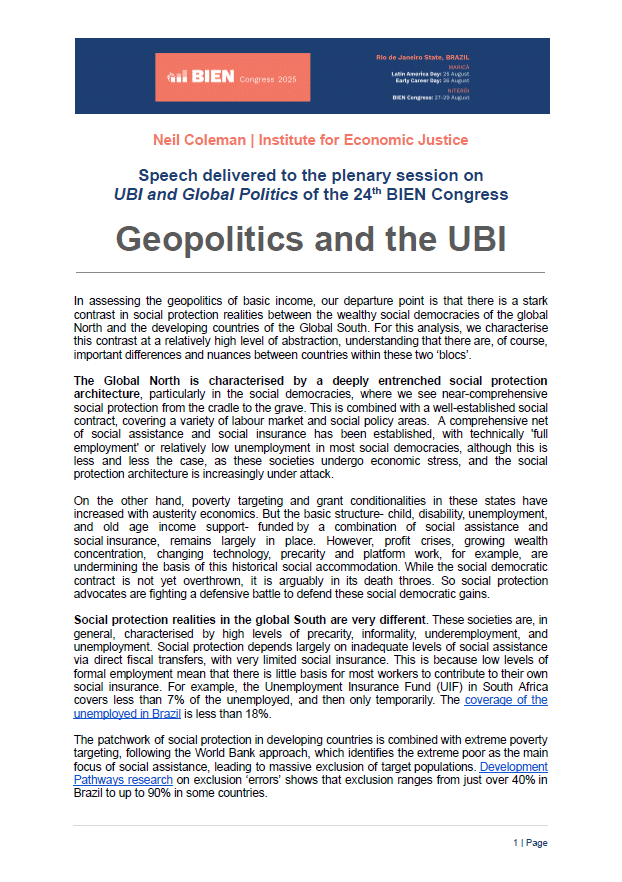Speech delivered by Neil Coleman to the plenary session on UBI and Global Politics of the 24th BIEN Congress.
Geopolitics and the UBI
In his address to the 24th Basic Income Earth Network (BIEN) Congress, Neil Coleman of the Institute for Economic Justice (IEJ) examines the stark contrasts between social protection realities in the Global North and South, and what these mean for the campaign for Universal Basic Income (UBI).
Social protection in crisis
Coleman notes that while wealthy democracies have long benefited from comprehensive social protection systems, these are now under strain from austerity and economic stress. In the Global South, by contrast, coverage is sparse, benefits inadequate, and exclusion rampant — reflecting a deeply unequal global architecture.
In South Africa, this manifests in Treasury’s attacks on the Social Relief of Distress (SRD) Grant. The IEJ, through litigation and advocacy, continues to defend and expand income support as a foundation for a future UBI.
The political economy of inequality
Coleman argues that the persistence of poverty and underprotection in the South is rooted in a global political economy that privileges the North. Wealth concentration, debt burdens, and fiscal austerity block progress toward universal social protection. To shift this trajectory, he calls for radical redistributive reforms — including wealth taxes, debt relief, fair commodity pricing, and stronger global taxation measures.
A global movement for basic income
Despite challenges, Coleman identifies opportunities. Growing public demand for alternatives to the failing status quo, and examples from Brazil, South Korea, and South Africa, suggest a rising tide of support. UBI, he concludes, must be tied to global struggles for economic justice — not as welfare, but as a developmental imperative capable of stimulating economies, reducing poverty, and countering inequality worldwide.

